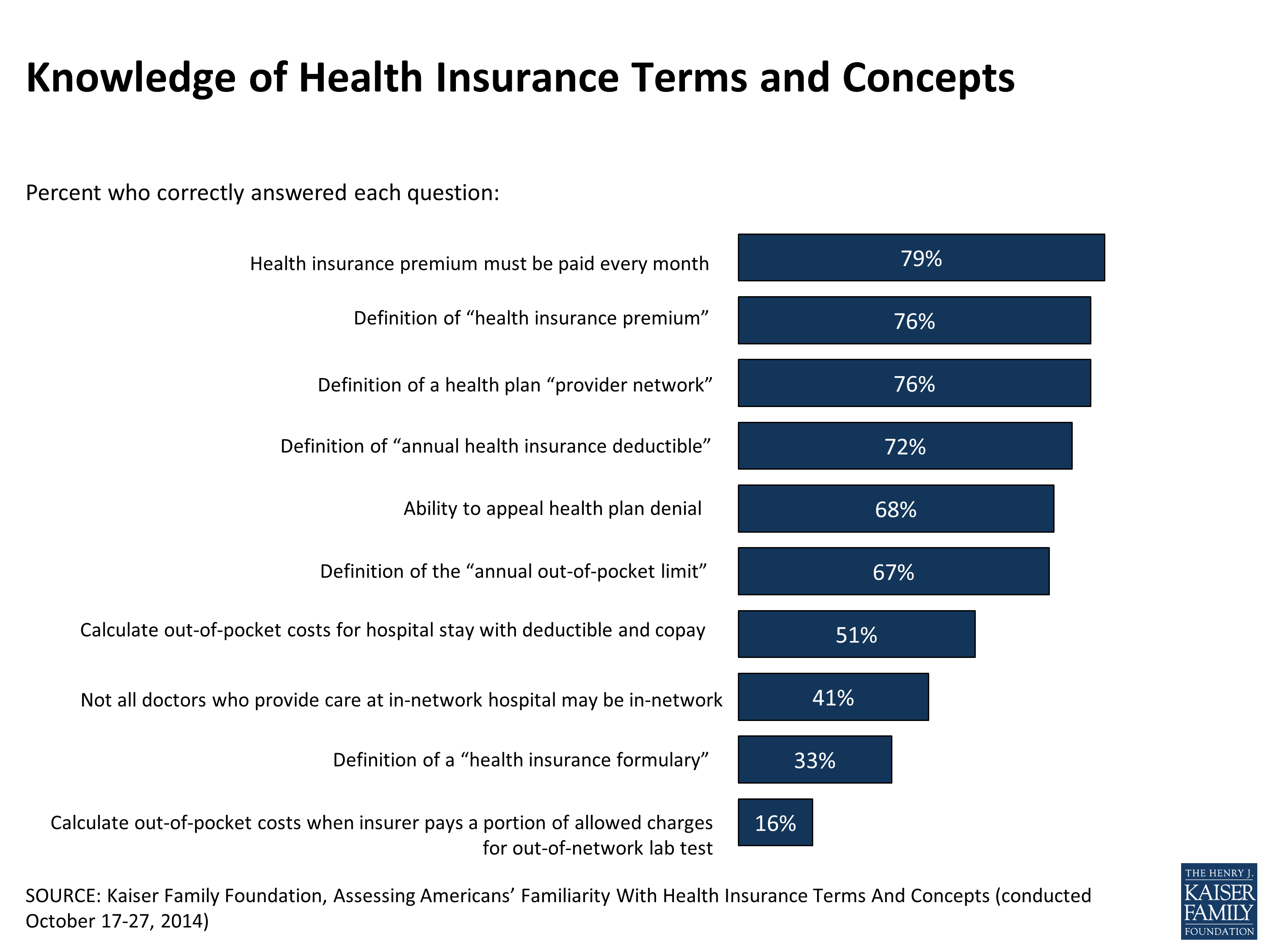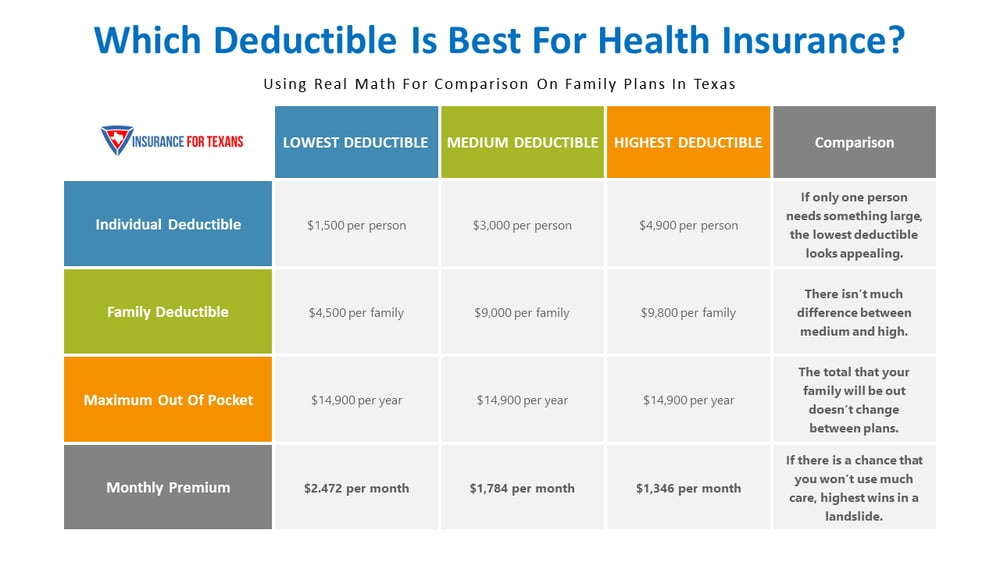For example, if you have a deductible of $1,000 and you have an auto accident that costs $4,000 to repair your car. You will have to pay $1,000 out of pocket as your deductible, and then your insurance would cover the additional $3,000 (or up to your coverage limit).. A high deductible health plan offers a much lower monthly premium payment in exchange for a higher annual deductible. A minimum deductible for an HDHP is $1,350 for an individual and $2,700 for a family, so you can expect to have a deductible of at least that amount if you are enrolled in a HDHP..
An HDHP is a health plan with a deductible of $1,400 or more for individuals or over $2,800 for families. Employer-sponsored health insurance might not offer an HDHP, but it can be purchased on the Obamacare health insurance marketplace. The trade-off for having high deductibles is lower monthly premiums, which means cheaper health insurance.. What Is a Health Insurance Deductible? ... while the second has a $500 monthly premium with a $1,000 deductible. If your health is generally good, you may be inclined to go with the first option..

If you receive health insurance through your employer, your contributions are likely made with pre-tax dollars. Therefore, you can't deduct your portion of the premiums at year's end.. High-Deductible Health Insurance: The Good, The Bad ... A Kaiser Family Foundation study finds that about half of all people with employer provided coverage have a deductible of at least $1,000 .. The amount you pay for covered health care services before your insurance plan starts to pay. With a $2,000 deductible, for example, you pay the first $2,000 of covered services yourself. After you pay your deductible, you usually pay only a copayment or coinsurance for covered services. Your insurance company pays the rest..

A traditional health insurance plan works on a system of copays and deductibles. The plan helps to pay your doctor's bills, lab tests, and prescriptions. With a traditional health insurance plan, you may be financially responsible for paying copayments (or copays), deductibles, and coinsurance.. A deductible is the amount you're responsible for paying for health care before your insurance takes over. If your deductible says $500/$1500, that means each individual on the plan has a maximum $500 deductible. The second number refers to the maximum deductible for all members of the plan..



